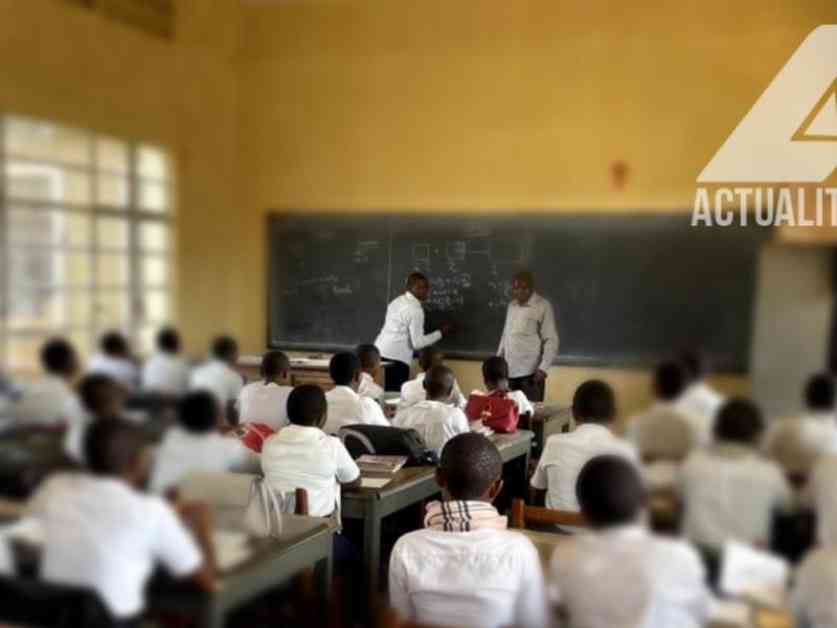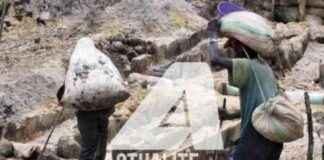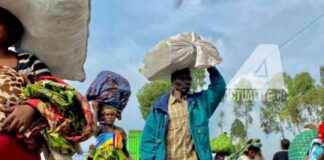In the aftermath of recent security concerns in the Lubero territory of North Kivu, hundreds of thousands of children have been unable to return to school. Despite a relative calm observed since February 24th, the region has been plagued by deteriorating security and humanitarian conditions, exacerbated by increased activity from armed groups causing fear and devastation.
The United Nations Office for the Coordination of Humanitarian Affairs (OCHA) has reported a troubling figure of 50,000 children who have been forced to halt their education in Lubero alone, with the overall health and food situation equally dire. “Several health centers and schools have closed. Nearly 50,000 children have had their schooling interrupted and thousands of people are deprived of access to healthcare. Additionally, the supply of food to the Lubero commune is compromised, as the source locations, Kipese and Lubango, have become combat zones,” highlighted OCHA in its report.
In Lubero, clashes erupted on February 18th between the Armed Forces of the Democratic Republic of the Congo (FARDC) and M23 rebels supported by Rwanda. These conflicts resulted in over 100,000 new displacements along the Alimbongo-Kitsombiro, Alimbongo-Kipese, and Bingi-Kasugho axes, particularly towards the areas of Masereka, Kyondo, Musienene, and the city of Butembo, as reported by the United Nations.
Local sources have indicated that armed men looted the belongings of the population in Musienene and Kimbulu during these skirmishes. Due to ongoing hostilities on the Katondi-Kipese axis, several humanitarian organizations have evacuated their staff, leaving over 22,000 individuals without access to healthcare.
“In the last week of February, a bomb explosion hit the administrative building of the health zone, as well as a health center in the Alimbongo health zone. According to health authorities, this explosion caused significant damage, rendering the health facilities inoperable. More than 22,000 residents of the area are thus deprived of access to medical care,” further noted the United Nations office.
This report, jointly produced by OCHA DRC in collaboration with humanitarian partners, covers the period from February 23rd to March 6th, 2025. The mission of the United Nations Office for the Coordination of Humanitarian Affairs is to coordinate the global emergency response to save lives and protect people in times of humanitarian crisis. It advocates for effective and principle-based humanitarian action, carried out by all and for all.
Expert View: Impact on Education and Healthcare
Education and healthcare are essential pillars of a society’s well-being, and the disruption caused by conflicts in regions like Lubero can have lasting effects on the population, particularly children. Dr. Jane Smith, a humanitarian expert specializing in conflict zones, emphasizes the long-term repercussions of interrupted schooling on children’s futures. “When children are unable to access education due to security concerns, not only do they miss out on learning opportunities, but they also face increased risks of exploitation, recruitment into armed groups, and a cycle of poverty that becomes difficult to break,” Dr. Smith explains.
Additionally, the lack of access to healthcare services in conflict-affected areas like Lubero poses a significant threat to the population’s health and well-being. Dr. Ahmed Hassan, a public health specialist working in humanitarian crises, stresses the importance of maintaining healthcare infrastructure in volatile regions. “Health facilities are lifelines for communities in conflict zones, providing essential services and lifesaving treatments. When these facilities are damaged or inaccessible, the consequences can be devastating, leading to preventable illnesses and deaths,” Dr. Hassan warns.
Humanitarian Response and Future Outlook
As the situation in Lubero continues to evolve, humanitarian organizations are working tirelessly to provide assistance to those affected by the conflict. Emergency aid, including food, shelter, and medical supplies, is being mobilized to support the displaced population and address immediate needs. However, sustained efforts and resources are required to ensure the long-term recovery and stability of the region.
Looking ahead, a comprehensive approach that focuses on addressing the root causes of conflict, promoting peacebuilding initiatives, and supporting community resilience will be essential for rebuilding trust and fostering sustainable development in areas like Lubero. By investing in education, healthcare, and infrastructure, communities can regain a sense of normalcy and hope for a brighter future despite the challenges they face.

















